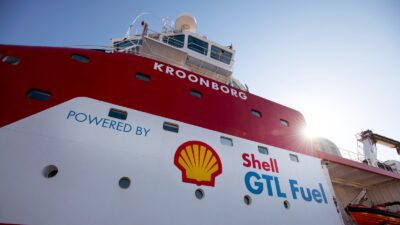Unilever (LSE:ULVR) is behind a significant number of well-known brands that are found in every corner of the world. Whether it’s Persil, Dove, Knorr, Lux or good old PG Tips, demand for its 400+ homecare, personal care and food & drink products are somewhat resistant to the ups and downs of the global economy.
This, among the other reasons I have outlined in this piece, is why I think Unilever is a key stock to hold during the uncertain waves of the Brexit saga.
Brexit? So far, so good
In order to set the scene, I thought it would be relevant to assess the performance of Unilever shares since the Brexit referendum was announced on June 23rd 2016. At the time of writing, Unilever shares are trading at 5,062p.
Should you invest £1,000 in Topps Tiles right now?
When investing expert Mark Rogers has a stock tip, it can pay to listen. After all, the flagship Motley Fool Share Advisor newsletter he has run for nearly a decade has provided thousands of paying members with top stock recommendations from the UK and US markets. And right now, Mark thinks there are 6 standout stocks that investors should consider buying. Want to see if Topps Tiles made the list?
This represents a 58.8% increase from the 3,186p the shares were traded at when the result of the Brexit vote was announced. During the same timeframe, the FTSE 100 index has grown by 20%.
For me, I see no reason at all why this disparity in growth will slow down any time soon. One of the key reasons for this is the continued weakness of the Pound Sterling. Unilever has benefited greatly from the demise of GBP, not least because much of its revenues and assets derive from the foreign markets.
This has been fundamental in two key areas. Firstly, Q1 2019 results outpaced expectations with a 3.1% growth in revenues. Secondly, and perhaps most importantly, Unilever is still on track to meet its 20% operating margin target, which it expects to meet before the close of 2020.
A master craftsman in diversification
While some analysts are put off by the organisation’s somewhat complex and overbearing approach to diversification, I for one think that Unilever is a master craftsman when it comes to its high quality and dependable acquisitions. This was further highlighted in its relatively recent purchases of Dollar Shave Club and Quala, who have both since performed remarkably well for the conglomerate.
However, an even more exciting addition to the Unilever portfolio could be that of Drunk Elephant. A potential $1 billion takeover of the US skincare firm would allow Unilever to flex its free cash flows to take the company to new heights.
Slower growth in developed markets should not derail long-term growth
As has been the case for some time now, Q1 2019 results presented further clarity that sales in developed markets are still somewhat stagnant.
Fierce pricing competition across Europe in particular resulted in a mere 0.3% gain for the quarter. However, this was clearly offset by the company’s growth in the emerging markets, where it saw a 5% increase in sales.
With the emerging markets now representing 58% of Unilever’s revenues, it is likely that the organisation will continue to spear-head its focus on these key regions.
Once again, with the uncertain woes of Brexit keeping GBP at record lows, this only amplifies the competitive of Unilever in the foreign markets.
The bottom line?
All in all, whether it’s an ever-growing product line that is arguably robust against the uncertainties of Brexit, a weakening pound that is further amplifying its strong-hold in the emerging markets, or extremely healthy operating margins, I think that the prospects for Unilever as a long-term holding look too good to turn down.







